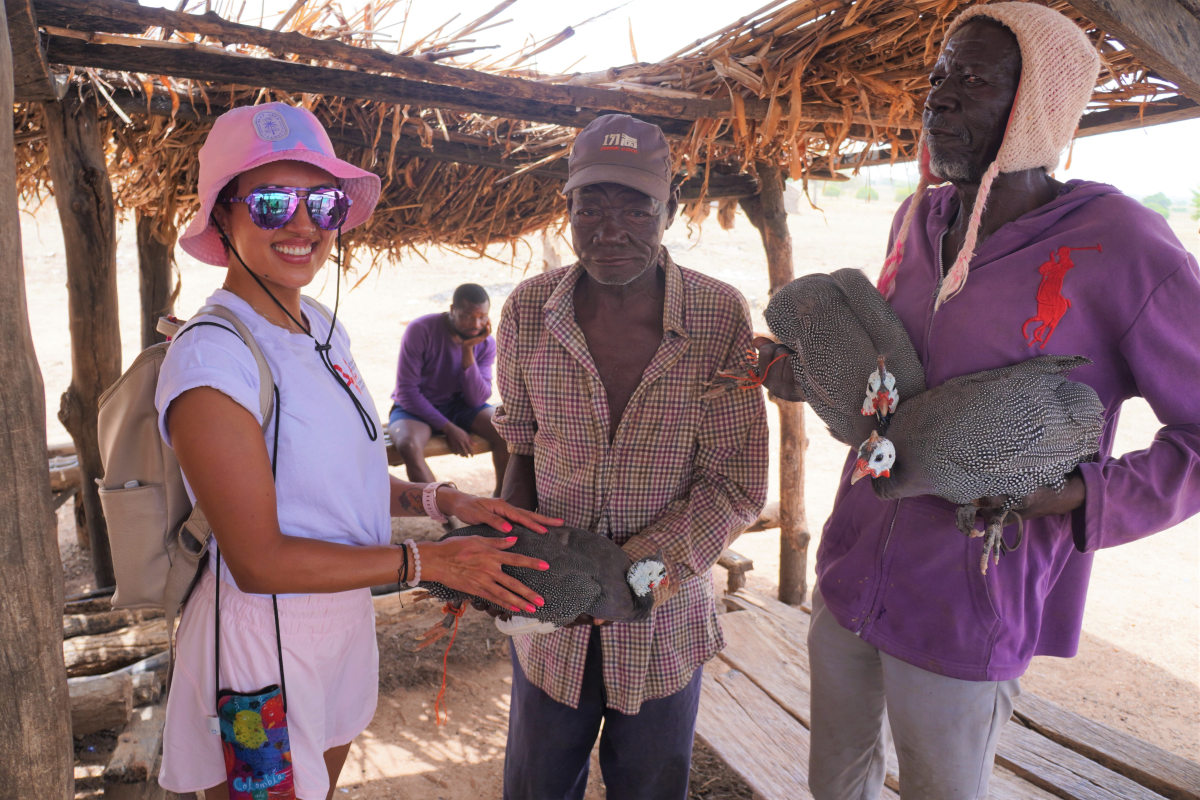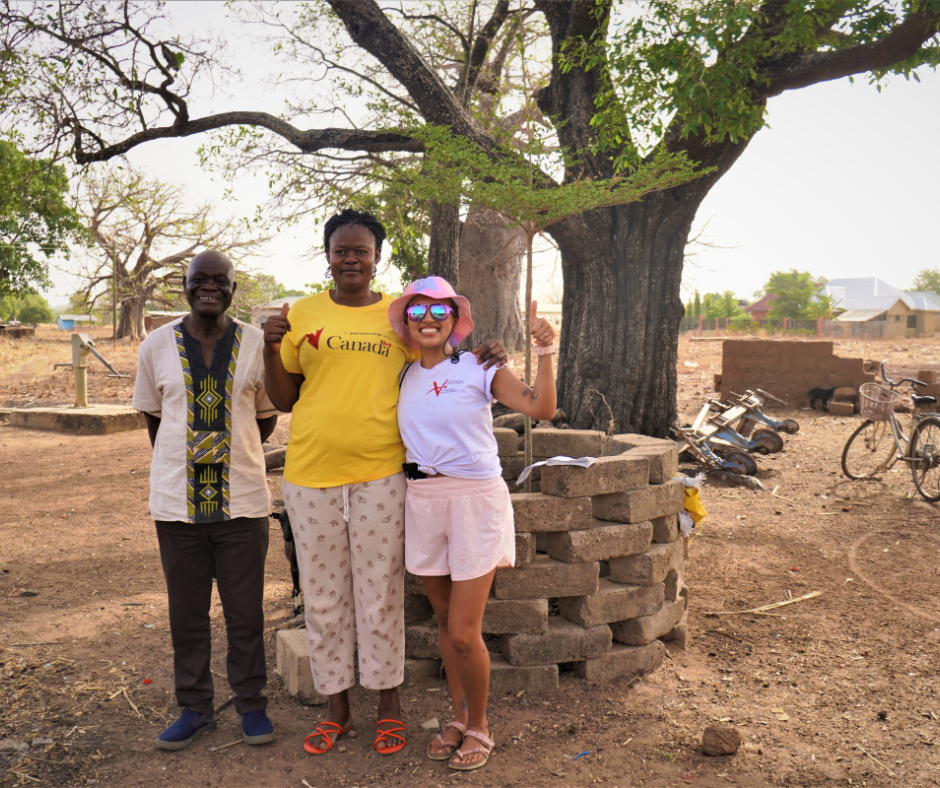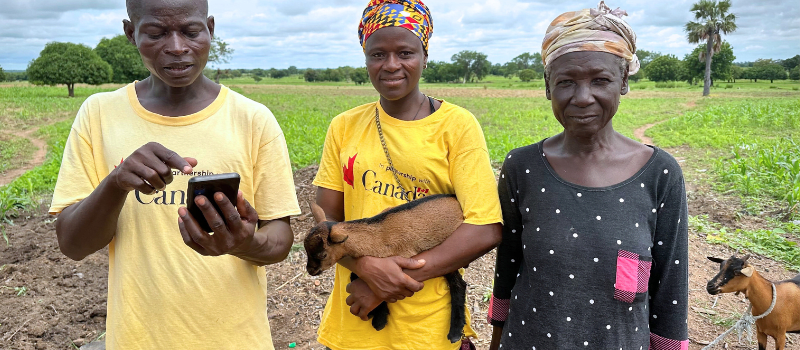It's National Volunteer Week across Canada! This week marks an opportunity to recognize and celebrate the contributions of volunteers across our communities, including those who have dedicated their time, knowledge, and skills to our national and global programs at Veterinarians Without Borders/Vétérinaires Sans Frontières (VWB/VSF).
Volunteers play a vital role in various sectors. They provide essential services, advocate for causes, and bring positive change to our society. National Volunteer Week highlights the impact and value of volunteerism and encourages more people to get involved in their communities. It promotes the spirit of civic engagement, social responsibility, and active citizenship, and also inspires people to collaborate, share their talents, and work towards a common goal.
To celebrate the incredible impact of VWB/VSF's volunteers, we're featuring five incredible volunteers who have made a significant impact for animals and communities.
Meet Natalia Hanson, a recent volunteer in Ghana through our VETS program!

1. What inspired you to volunteer with VWB/VSF?
I like to travel and experience new cultures to gain perspectives and form opinions. Volunteering with VWB/VSF is the perfect opportunity to combine my passion for travel with my desire to help others. I know that I am lucky to live in a country like Canada, and to have had access to higher education and more opportunities than many people in the world. Helping others through volunteering is a way to thank the Universe for all my blessings; it's a way to give back. Yes, this sounds very "hippie-dippy" and "woo-woo", but it's true. We need to pay it forward. If we can use our skills and knowledge to improve something or someone, then we are helping make the world a better place.
2. Why is supporting animal health important
It is essential to support animal health in Canada because, as the recent global pandemic demonstrated, the health of animals is directly linked to the health of humans and the health of the environment. It's a cycle; it's a chain. For example, in the case of farmed animals, if they are treated humanely and if they receive proper care and husbandry, they will yield higher production, which results in higher income, thus improving the livelihoods of farmers.
3. What is a favourite memory or highlight of your volunteer work?
I've done two volunteer placements with VWB/VSF Canada. One to Meru, Kenya, to support the Meru Dairy Co-op in January 2020, and my current placement in Accra, Ghana, to support GAPNET. Both have been communication roles. My favourite memory from both trips is the connections I make with people. Interpersonal relationships are essential; especially maintaining them through the years. For example, one of the men my fellow VWB/VSF volunteers and I met in Kenya, (he drove us to a safari), has stayed in touch with all of us. He married this past weekend and shared the big news with us. To me, that's priceless.
Also, having the opportunity to learn about the history and culture of the country I am visiting is something I don't take for granted. Sadly, Ghana was one of the African countries negatively affected by the Transatlantic slave trade, and I wanted to learn more about this shameful chapter of humanity's history. On my third weekend here, I took a tour to Cape Coast, where I toured Elmina Castle and Cape Coast Castle, and learned more about the suffering millions of enslaved Africans endured for over 400 years. We must learn to listen, be grateful for the things we have, and become better people.

4. Any advice for individuals interested in becoming international development volunteers?
My advice for anyone interested in volunteering with VWB/VSF is to be comfortable with being uncomfortable. When travelling to another country, you need to lower or remove your expectations. You must be able to mould to the local people's culture and customs, as you are a guest in their country. It isn't always easy being away from home, if we are honest, so one must be resilient to be an international volunteer, especially for longer periods. Another essential advice is to accept and adjust to how others work. For example, in Canada, we conduct business properly via emails, scheduled meetings, etc. In other countries, this may not be the case; for example, they would prefer to conduct business transactions and share essential documents via WhatsApp or have a casual meeting on a Sunday after Church. We cannot impose our ways of doing things on others; that would be patronizing. Speaking of that, please remember that volunteering abroad doesn't make you a white saviour. We must be respectful, kind, and open to learning from others as they learn from us. We aren't here to save anybody; we are here to support them and empower them.
5. Any advice for individuals interested in becoming international development volunteers?
Having the opportunity to volunteer abroad is a life-enriching experience. I'll be honest; it isn't for everyone, but if you're willing to come out of your comfort zone, are adventurous, and want to leave your mark on the world, consider doing it!
Interested in becoming a volunteer? Check out our current openings!




